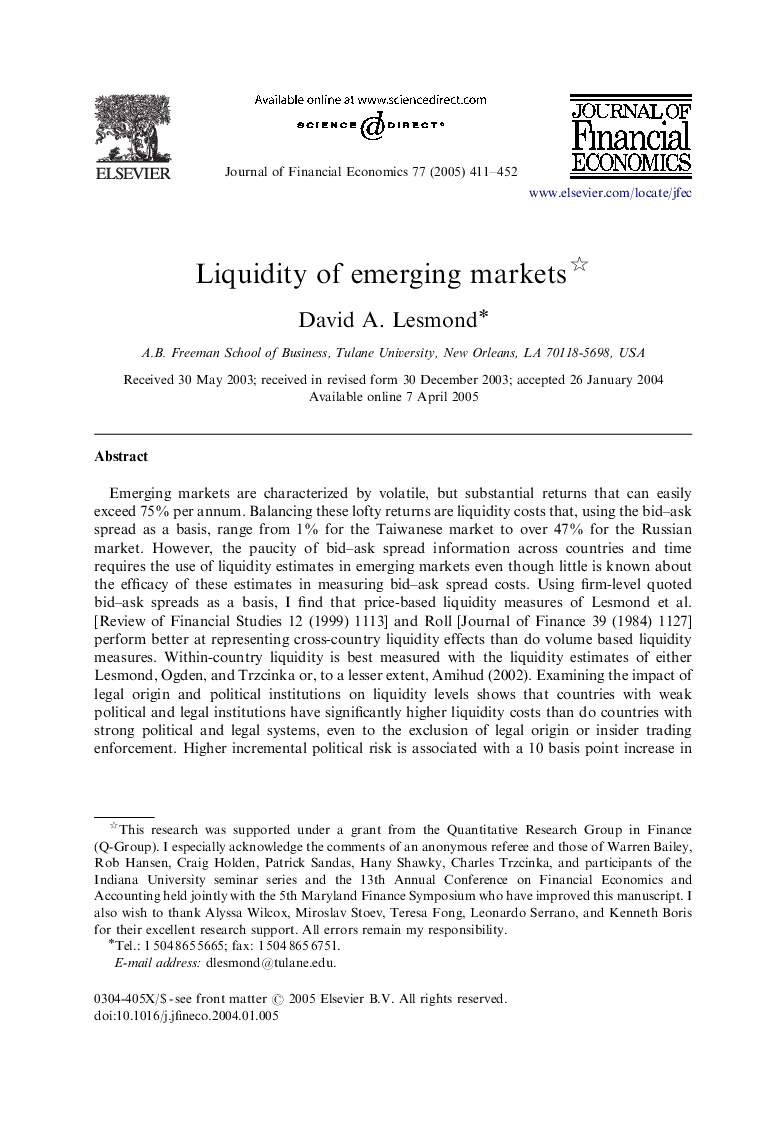| Article ID | Journal | Published Year | Pages | File Type |
|---|---|---|---|---|
| 10475837 | Journal of Financial Economics | 2005 | 42 Pages |
Abstract
Emerging markets are characterized by volatile, but substantial returns that can easily exceed 75% per annum. Balancing these lofty returns are liquidity costs that, using the bid-ask spread as a basis, range from 1% for the Taiwanese market to over 47% for the Russian market. However, the paucity of bid-ask spread information across countries and time requires the use of liquidity estimates in emerging markets even though little is known about the efficacy of these estimates in measuring bid-ask spread costs. Using firm-level quoted bid-ask spreads as a basis, I find that price-based liquidity measures of Lesmond et al. [Review of Financial Studies 12 (1999) 1113] and Roll [Journal of Finance 39 (1984) 1127] perform better at representing cross-country liquidity effects than do volume based liquidity measures. Within-country liquidity is best measured with the liquidity estimates of either Lesmond, Ogden, and Trzcinka or, to a lesser extent, Amihud (2002). Examining the impact of legal origin and political institutions on liquidity levels shows that countries with weak political and legal institutions have significantly higher liquidity costs than do countries with strong political and legal systems, even to the exclusion of legal origin or insider trading enforcement. Higher incremental political risk is associated with a 10 basis point increase in transaction costs, using the Lesmond, Ogden, and Trzcinka estimate, or a 1.9% increase in price impact costs, using the Amihud estimate.
Related Topics
Social Sciences and Humanities
Business, Management and Accounting
Accounting
Authors
David A. Lesmond,
